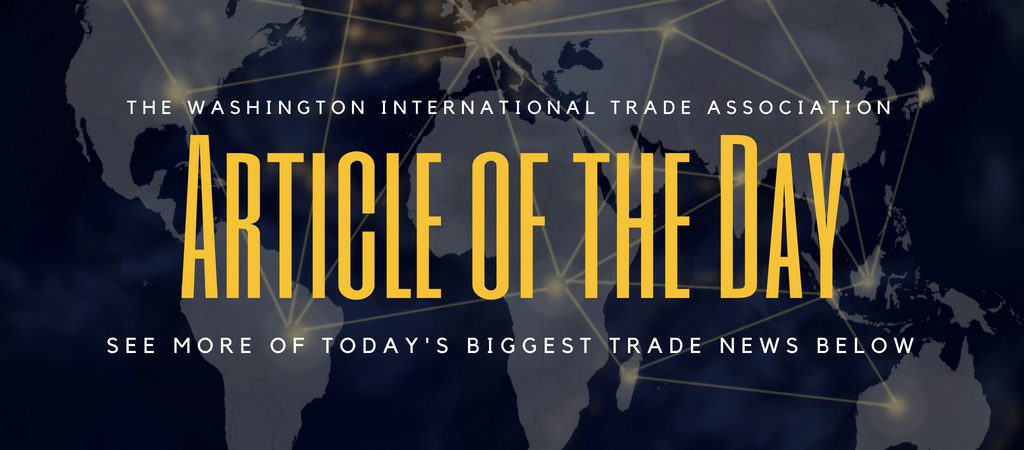The coronavirus pandemic has caused a global scramble for essential medical supplies like masks, gloves, gowns and ventilators. In the panic, governments have imposed or considered new barriers to trade, trying to protect their own access to scarce supplies.
As of March 21, one trade policy group had calculated that 54 governments had placed limits on the exporting of medical goods. The U.S. joined the trend late last week, with an order directing companies not to sell respirators, masks or gloves overseas.
It is a tactic that may backfire, according to some manufacturers and trade analysts.
“All it takes is some other country out there to say, ‘Oh, you’re going to impose a limit on what you sell to us, [say] masks? Well, then, we’re going to restrict our exports to you of gloves. Or gowns. Or thermometers,” says Chad Bown, a senior fellow at the Peterson Institute for International Economics.
Other countries could also restrict access to essential materials, like pulp for surgical masks or parts for ventilators. And with supply chains intertwined around the globe, it’s difficult if not impossible to “strategically manipulate supplies and trading partners without shooting yourself in the foot,” Bown says.
President Trump’s recent order has caused tension with allies. Canada called it a mistake, while Germany and France have accused the U.S. of seizing and diverting shipments headed toward their shores.
Meanwhile, one manufacturer pushed back against the administration. The dispute illustrates the many tensions at the heart of these trade discussions.
The White House wanted the company 3M, which makes much-needed N95 masks, to stop shipping U.S.-made masks to other countries. The U.S. has more coronavirus cases than any other country, and shortages of N95 masks are putting health care workers’ lives at risk.
“To be frank, over the last several days, we’ve had some issues making sure that all of the production that 3M does around the world, enough of it is coming back here to the right places,” White House adviser Peter Navarro said Thursday.
But 3M warned that blocking exports — if it pushed even more countries toward protectionism — would actually reduce the availability of masks.
While the company manufactures millions of masks within the U.S., it imports many more masks to the U.S. from overseas, particularly China.
If other countries retaliated by blocking masks from being sent to the U.S., “the net number of respirators being made available to the United States would actually decrease,” 3M said. “That is the opposite of what we and the Administration, on behalf of the American people, both seek.”
Of course, the U.S could simply make more masks domestically. That fits with the White House’s broader goals for U.S. manufacturing, and it’s already underway: Many companies are now switching to making masks, gloves and ventilators.
But Chris Rogers, a supply chain analyst with S&P Global Panjiva, says even large manufacturing powerhouses like the U.S., the European Union and China should think twice before trying to rely exclusively on their own output.
Ramping up production takes time, and in a pandemic there’s no time to waste, he says.
“This kind of closing of borders, whilst it might help drive or provide an economic incentive for countries to become more self-sufficient, the time taken to do that should probably be measured in months rather than weeks,” Rogers says.
And what about smaller countries, which couldn’t possibly make every single medical product they might need?
3M also cautioned that blocking exports would have “humanitarian implications,” since it would cut off some other countries’ only supply of the masks.
Erik Gordon, a professor at the University of Michigan’s Ross School of Business, calls this a public relations blunder on 3M’s part. “The claim that it is humanitarian to ship masks that could have saved American lives to other countries will astonish and anger a lot of American customers of 3M,” he says.
Thomas Tighe, the CEO of the medical aid group Direct Relief, says he understands why this argument might not sit well with some.
To see the full article, click here.

